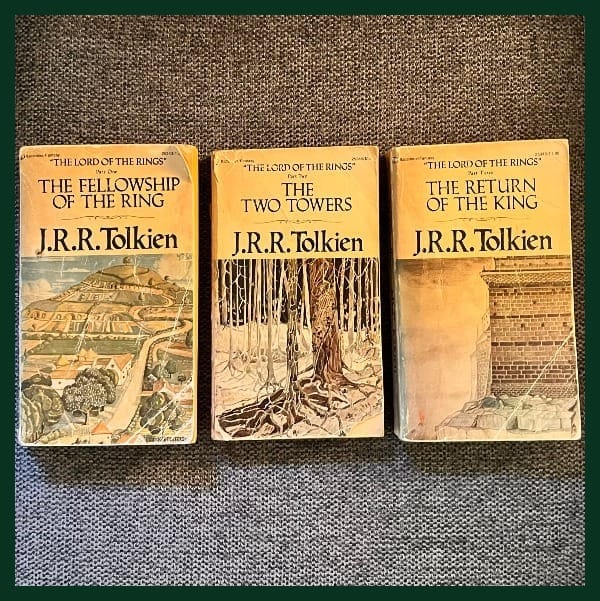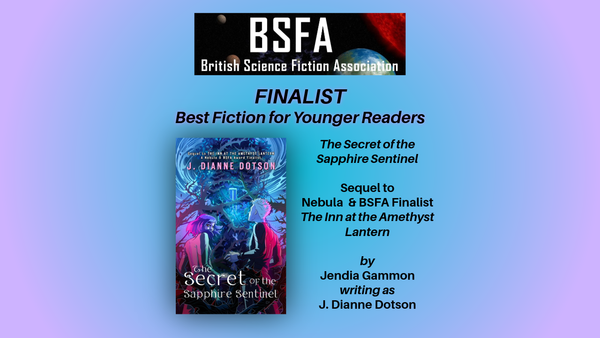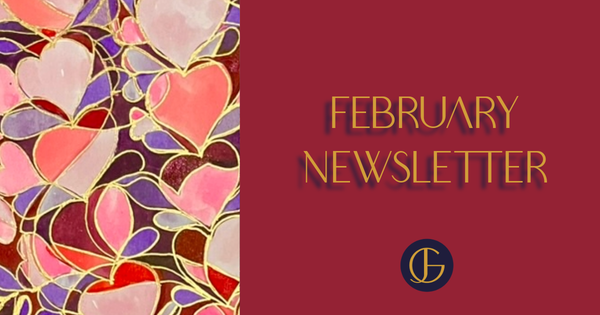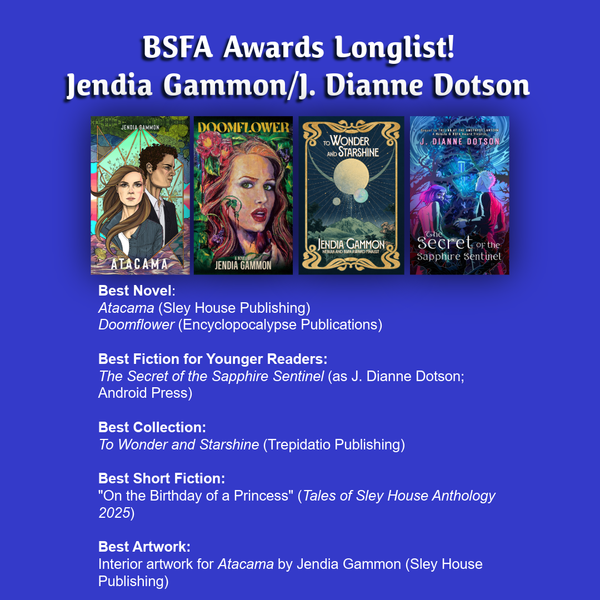Influential Books: The Lord of the Rings
The quintessential classic fantasy saga by J.R.R. Tolkien of course influenced my work.

Welcome to my feature on Influential Books! Each week I showcase a book or series that profoundly influenced my writing. This week we come to J.R.R. Tolkien’s The Lord of the Rings trilogy: The Fellowship of the Ring, The Two Towers, and The Return of the King. Let’s take a closer look together, shall we?
Many years ago, when I was a young child in East Tennessee, I pilfered through the books of my three older siblings, largely when they weren’t around. They empty nested, and I seemed at times an only child, living in an idyllic countryside that might, if you squinted only a bit, have resembled a certain pastoral place called The Shire. Rolling green hills, farms, hedges, animals: that was my haven and my wonderland, and it was easy to imagine the worlds J.R.R. Tolkien wrote about, because they were right outside my door…or they were in my growing imagination, which I liked to slip away to more often than not.
It would take a little bit of effort, in the early 1980s, for me to decide to finish this series. One summer, I finally sat down to do it. My second oldest brother had the very copies you see above, and I have carried them with me to and from Tennessee, and up and down the West Coast, and now you can see them yourselves. I do not think he misses them, but I would. Both of us were powerfully inspired by the series from childhood on, and we both would invent languages. I didn’t take mine quite as far as he did. But I did begin building my own fantasy (and science fiction and horror) worlds in a different way after I read these books.
Foods and Drinks in Genre Fiction
One of the things my bottomless pit of an appetite noticed right away with this series: food. There was a lot of food, and different kinds of characters ate their own special kinds of food. I loved this. This is part of what made the series so real to me. It’s abundantly clear that Tolkien loved foods as much as I did (I never did adopt his love for a pipe, though!), and relished building the affection for (and stress at the lack of) food and drink as part of the plots.
The fact is, foods and beverages are essential to world-building. Sources of energy are crucial to your characters and creatures! How else can they keep going? Unless they’re gods or something? But even godlike beings, in my writing, enjoy something related to food. Maybe it’s not the kind of thing you think of eating. Maybe it’s power.
In The Lord of the Rings, we hear about cakes and ales and cheeses and breads, whether the loaf kind or the lembas Elven kind, and the longing the poor hobbits have (no matter the number of breakfasts!) for food when things go badly. Food is necessary, food is comfort, food is home.
Tolkien understood this.
Small Yet Mighty
This series is a long saga about underdogs. Sure, we have the mythical Elves, Dwarves, Orcs, and other creatures populating Middle Earth. But it’s the small folk, the hobbits, who we identify with the most. They lived simple lives until two certain Bagginses took off on respective adventures, becoming embroiled in something far greater than they understood, whether they wanted to or not.
There are kings, princesses, Dark Lords, monstrous, warped creatures, and so on. But at the end of it, they all spin around the gravity well of the choices of the very small, the hobbits, whose capacity for endurance shapes the destinies of everyone.
The hobbits may not be humans like us, but we identify with them because they are not grand, ageless beings. They’re at the mercy of larger things, but they are resilient. That’s aspirational. And it’s inspiring. Just look at Bilbo! He kept working on that book, despite the weight of the One Ring upon his soul. Once freed from that, he continued his work. Page by page, he determined to finish that book, and he did.
The Power of Friendship
Perhaps the best thing about The Lord of the Rings, aside from its incredible beauty, its languages, its cadence, its song…it all comes down to friendship. When I write my books, I make absolutely sure that my characters need and value their friendships. This helps to ground the characters, inspire them, and cause them to remember what truly matters. I think back to Tolkien’s masterpiece and his keen understanding of the importance of friendship.
As a nod to the series, I wrote a story in ’ s Tales from Stolki’s Hall: A Thrones and Bones anthology, my first media tie-in story, “The Tower and the Raven.” In it, the improbable friendships between a human man, a frost giant, and a sentient raven unfold through changing landscapes and among various mysterious and sometimes even sinister beings of the forest. I imagined this tale as fitting in the sort of universe Tolkien made; but Anders made his own with the Thrones and Bones universe! And it’s a wonderful place to experience.
In my Questrison Saga space opera books (Heliopause, Ephemeris, Accretion, and Luminiferous, all written under my alt pen name J. Dianne Dotson), friendship is paramount to the fate of the galaxy. Forster realizes he can find meaning in his life from his friendships. The friends Galla recruits for her mission become the Questri, and she comes to realize that friendship and family (whether found or made) truly matter more than anything else.
Tolkien’s series set the stage early on for me to think about both the large and the small, the myths, and the moments. When I finished those books as a kid, I wished I could start fresh as if I’d never read them before. But as an adult, now I see the beauty in returning to them, and nodding, as I age, because as both a writer and someone in middle age while I read about Middle Earth, I understand now, more than ever, why he wrote those books. Thank you, good sir. May the light of the Telperion and Laurelin glow ever upon you.
Write on!
Jendia




